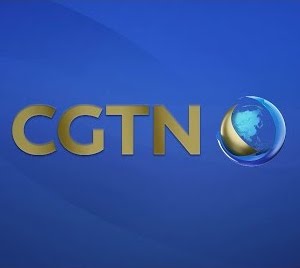The إجر كرسي lunch
On Thursday, the day after the Kahlil Gibran Spirit of Humanity Awards, the Arab-American Institute's National Policy Council convened to discuss organizational strategy, followed by a luncheon at which we were to hear from various presidential campaigns on both sides of the aisle. Because the candidates themselves would not attend, but rather surrogate speakers, a colleague jokingly referred to this as the ijr kirsi lunch, quoting the Arabic expression إجر كرسي that translates to "leg of a chair", meaning someone who has subjugated himself to another and has no independent authority or power.
The group heard from 6 campaigns - 3 Democrats and 3 Republicans. On the Democrat side, we had the 3 most expected: Hillary Clinton, Barack Obama, and John Edwards. On the Republican side, we had a bit of a surprise - John McCain and Mitt Romney were represented, but not Rudy Giuliani. Mike Huckabee's was the 3rd GOP campaign to speak to us.
I will cover each of the 6 presentations in the order in which they spoke, and then give overall impressions. (continued...)
1) John Edwards, represented by David Bonior
It was a smart move on the part of Edwards to send former Michigan Congressman David Bonior, who is highly respected by the Arab-American community. Bonior was one of a small House delegation that traveled to Iraq in 2002 in a last-ditch effort to avert war. Recounting that trip, he emphasized the importance of a sustainable resolution to the Israel-Palestine conflict, recalling a visit to a high school in Baghdad where he said that every student knew of, and disapproved of, America's position.
While I certainly agree with the need to resolve Israel's land disputes with her neighbors on the basis of land for peace, as I have written repeatedly, the idea that the creation of a Palestinian state will diffuse the brewing civil war within Iraq is far-fetched. I argue this point in a Chronicles article coming up in the June issue, so stay tuned. This is the problem that presents itself when the likes of James Baker III weigh in on an issue - whether right or wrong, inside the Beltway his ideas become acceptable opposition slogans with little substance.
Bonior did his best to tout Edwards's mea culpa on the Iraq War, and promoted Edwards's pledges to shut down Guantanamo Bay and "say no to torture". He also mentioned Darfur, and efforts to increase sanctions on the Sudanese government.
2) John McCain, represented by Randy Scheunemann
Scheunemann knew he would be facing a less-than-receptive crowd, but AAI Chairman George Salem nonetheless gave him a very warm welcome. He touted McCain's support of Bill Clinton's ridiculous wars in the Balkans, with emphasis on the fact that the US intervened against the Christian Serbs. Paleoconservatives hate that.
He quoted from McCain's recent speech at the Virgina Military Institute:
Scheunemann said that McCain welcomes a wide variety of input, has based his foreign policy views on diverse opinions from Brent Scowcroft to Henry Kissinger, and that he has named Bob Kagan (whom he identified as associated with the neoconservatives) and Rich Williamson (a former Reagan-era State Department official). I was pleased that Scheunemann was so engaging, even if I don't think much of McCain's foreign policy leanings and have no reason to believe that the same individuals who have disproportionately influenced foreign policy in the Bush Administration would be pulled back.
He was met with shoutbacks from the audience when he asserted that cluster bombs are not illegal, which was inappropriate - however, I was surprised to see Scheunemann completely disregard the question posed by Virginia-based activist Marwan Burgan in the hallway after his presentation, which was something like, "Will Senator McCain at least agree to ask the Israelis to divulge the coordinates of the cluster bombs used in Southern Lebanon?"
Scheunemann was also wise to have preempted hostile questioning about McCain's Beach Boys karaoke appearance by mentioning that he "joked with his veteran friends" recently.
3) Hillary Clinton, represented by Bill Shaheen
Shaheen is an Arab-American, and a major player in New Hampshire Democrat politics. He was very loyal to John Kerry, but once Kerry bowed out for 2008, Clinton courted him aggressively and won him over.
He has a lot of credibility within the community and is respected for pride in his heritage. Shaheen reiterated time and time again that Clinton assured him that her #1 priority was Middle East peace and that is what convinced him to support her. He also touched upon the gender issue and said that as the father of 3 daughters, he felt extra motivation to help her become the 1st woman President of the USA.
4) Barack Obama, represented by Anthony Lake
Lake is very academic is his presentation, but hard not to like. Obama has done well by choosing some "gray hair" to compensate for the fact that he's completely unqualified to be President of the United States.
I was just waiting for Lake to quote Obama from the 2004 Democratic National Convention:
5) Mitt Romney, represented by Alan Philp
Philp was a very nice guy, but not an expert on foreign policy so it was hard for him to respond. Hesham Mahmoud asked the hot question on everyone's mind - why did Romney attack Nancy Pelosi for wearing a scarf over her head as she visited the Umayyad Mosque in Damascus? Philp and another Romney staffer seemed to disagree with the context, but philanthropist Assad Jebara stepped in and compared it to wearing a yarmulke in a Jewish synagogue. George Salem even brought up how his wife covered her hair as a sign of respect when entering the Vatican.
After Philp ran through a rather comprehensive package of fiscally-conservative measures, I asked the same question that I had posed to Scheunemann earlier, although in a slightly different form. I said something like:
6) Mike Huckabee, represented by Karen Johnson
Johnson was polite and willing to listen, but admittedly didn't know much at all about foreign policy, so it was hard to have a dialogue. She mentioned Huckabee's commitment to education though, so Rebecca Abou-Chedid, AAI's legislative liaison, engaged her on the possibility of fostering more content on the modern Middle East in school curriculae. She was quite receptive to the idea.
Huckabee has a shot at winning the support of Arab-American Republicans because he has been thus far the least hawkish announced GOP candidate, after Ron Paul, having remarked that he supports negotiations with "Iran and Syria" (here we go again).
All in all, it was nice to be engaged by these 6 campaigns and I personally learned a bit more about Romney and Huckabee. Although, the key objective behind all of this was to give Jim Zogby and George Salem the chance to ask, face-to-fact in front of the community, if each candidate would be willing to attend the AAI's National Leadership Conference in late October in Michigan. In 2003, we had the entire Democrat field, including personal appearances by Howard Dean, Joe Lieberman (who was impolitely heckled by some lady who wasn't even Arab-American), and others. Let's see if Giuliani bothers to show this year, since given his absence this time.
The group heard from 6 campaigns - 3 Democrats and 3 Republicans. On the Democrat side, we had the 3 most expected: Hillary Clinton, Barack Obama, and John Edwards. On the Republican side, we had a bit of a surprise - John McCain and Mitt Romney were represented, but not Rudy Giuliani. Mike Huckabee's was the 3rd GOP campaign to speak to us.
I will cover each of the 6 presentations in the order in which they spoke, and then give overall impressions. (continued...)
1) John Edwards, represented by David Bonior
It was a smart move on the part of Edwards to send former Michigan Congressman David Bonior, who is highly respected by the Arab-American community. Bonior was one of a small House delegation that traveled to Iraq in 2002 in a last-ditch effort to avert war. Recounting that trip, he emphasized the importance of a sustainable resolution to the Israel-Palestine conflict, recalling a visit to a high school in Baghdad where he said that every student knew of, and disapproved of, America's position.
While I certainly agree with the need to resolve Israel's land disputes with her neighbors on the basis of land for peace, as I have written repeatedly, the idea that the creation of a Palestinian state will diffuse the brewing civil war within Iraq is far-fetched. I argue this point in a Chronicles article coming up in the June issue, so stay tuned. This is the problem that presents itself when the likes of James Baker III weigh in on an issue - whether right or wrong, inside the Beltway his ideas become acceptable opposition slogans with little substance.
Bonior did his best to tout Edwards's mea culpa on the Iraq War, and promoted Edwards's pledges to shut down Guantanamo Bay and "say no to torture". He also mentioned Darfur, and efforts to increase sanctions on the Sudanese government.
2) John McCain, represented by Randy Scheunemann
Scheunemann knew he would be facing a less-than-receptive crowd, but AAI Chairman George Salem nonetheless gave him a very warm welcome. He touted McCain's support of Bill Clinton's ridiculous wars in the Balkans, with emphasis on the fact that the US intervened against the Christian Serbs. Paleoconservatives hate that.
He quoted from McCain's recent speech at the Virgina Military Institute:
"The war on terror, the war for the future of the Middle East, and the struggle for the soul of Islam — of which the war in Iraq constitutes a key element — are bound together. Progress in one requires progress in all...We must gain the active support of modernizers across the Muslim world, who want to share in the benefits of the global system and its economic success, and who aspire to the political freedom that is, I truly believe, the natural desire of the human heart."Another neoconservative lullaby to put Americans to sleep. When it came time for questions, Samah Norquist (pictured at far right along with fellow Arab-American Republicans [rtl] Sherine el-Abd, me, and Hesham Mahmoud) kicked off by mentioning recent comments by Bob Novak, with whom she recently toured the West Bank, which run contrary to McCain's views. I followed up by recognizing Scheunemann's service to the GOP, but noted that as a conservative activist and a registered Republican I had issues with the fact that many influential policy-makers in recent years are not conservatives at all. He picked up on this question and said, "I believe you may be referring to the so-called 'neoconservatives'" and disparaged use of the term. I agreed and said, "exactly, that's why I didn't use the word."
Scheunemann said that McCain welcomes a wide variety of input, has based his foreign policy views on diverse opinions from Brent Scowcroft to Henry Kissinger, and that he has named Bob Kagan (whom he identified as associated with the neoconservatives) and Rich Williamson (a former Reagan-era State Department official). I was pleased that Scheunemann was so engaging, even if I don't think much of McCain's foreign policy leanings and have no reason to believe that the same individuals who have disproportionately influenced foreign policy in the Bush Administration would be pulled back.
He was met with shoutbacks from the audience when he asserted that cluster bombs are not illegal, which was inappropriate - however, I was surprised to see Scheunemann completely disregard the question posed by Virginia-based activist Marwan Burgan in the hallway after his presentation, which was something like, "Will Senator McCain at least agree to ask the Israelis to divulge the coordinates of the cluster bombs used in Southern Lebanon?"
Scheunemann was also wise to have preempted hostile questioning about McCain's Beach Boys karaoke appearance by mentioning that he "joked with his veteran friends" recently.
3) Hillary Clinton, represented by Bill Shaheen
Shaheen is an Arab-American, and a major player in New Hampshire Democrat politics. He was very loyal to John Kerry, but once Kerry bowed out for 2008, Clinton courted him aggressively and won him over.
He has a lot of credibility within the community and is respected for pride in his heritage. Shaheen reiterated time and time again that Clinton assured him that her #1 priority was Middle East peace and that is what convinced him to support her. He also touched upon the gender issue and said that as the father of 3 daughters, he felt extra motivation to help her become the 1st woman President of the USA.
4) Barack Obama, represented by Anthony Lake
Lake is very academic is his presentation, but hard not to like. Obama has done well by choosing some "gray hair" to compensate for the fact that he's completely unqualified to be President of the United States.
I was just waiting for Lake to quote Obama from the 2004 Democratic National Convention:
"If there's an Arab-American family being rounded up without benefit of an attorney or due process, that threatens my civil liberties."How comforting. Almost as comforting as that guy who ran in 2000 and said:
"Arab-Americans are racially profiled in what's called secret evidence. People are stopped, and we've got to do something about that. My friend, Sen. Spence Abraham is pushing a law to make sure that Arab-Americans are treated with respect."Thanks to Nouri for linking to me on that one.
5) Mitt Romney, represented by Alan Philp
Philp was a very nice guy, but not an expert on foreign policy so it was hard for him to respond. Hesham Mahmoud asked the hot question on everyone's mind - why did Romney attack Nancy Pelosi for wearing a scarf over her head as she visited the Umayyad Mosque in Damascus? Philp and another Romney staffer seemed to disagree with the context, but philanthropist Assad Jebara stepped in and compared it to wearing a yarmulke in a Jewish synagogue. George Salem even brought up how his wife covered her hair as a sign of respect when entering the Vatican.
After Philp ran through a rather comprehensive package of fiscally-conservative measures, I asked the same question that I had posed to Scheunemann earlier, although in a slightly different form. I said something like:
"First of all, it's good to hear a Republican candidates talk about fiscal conservatism again! As a Republican activist, I find it disturbing when I hear some of my conservative colleagues defend the Iraq War by saying, 'we're doing good things over there, we're building schools...' Building schools? Federal tax dollars shouldn't even be used to build schools here in the United States, let alone in Iraq!Philp couldn't really answer other than to say that Steve [last name] is Romney's chief foreign policy adviser. But I was intrigued by his statement that Romney seeks ideas and solutions not requiring congressional action. I suppose if Democrats keep control of Congress and Romney ascends to the White House, we will have some very active checks-and-balances.
I think part of the reason for that is that political cover for these statements is given by well-placed people who influence decisions and don't really have any conservative credentials. Can you tell us Governor Romney's thoughts on that and perhaps provide for us, as your counterpart from Senator McCain's campaign did, the names of some individuals who Governor Romney plans to involve in his foreign policy efforts, since often times the track records of advisers reveal more about the policy than statements made during a campaign."
6) Mike Huckabee, represented by Karen Johnson
Johnson was polite and willing to listen, but admittedly didn't know much at all about foreign policy, so it was hard to have a dialogue. She mentioned Huckabee's commitment to education though, so Rebecca Abou-Chedid, AAI's legislative liaison, engaged her on the possibility of fostering more content on the modern Middle East in school curriculae. She was quite receptive to the idea.
Huckabee has a shot at winning the support of Arab-American Republicans because he has been thus far the least hawkish announced GOP candidate, after Ron Paul, having remarked that he supports negotiations with "Iran and Syria" (here we go again).
All in all, it was nice to be engaged by these 6 campaigns and I personally learned a bit more about Romney and Huckabee. Although, the key objective behind all of this was to give Jim Zogby and George Salem the chance to ask, face-to-fact in front of the community, if each candidate would be willing to attend the AAI's National Leadership Conference in late October in Michigan. In 2003, we had the entire Democrat field, including personal appearances by Howard Dean, Joe Lieberman (who was impolitely heckled by some lady who wasn't even Arab-American), and others. Let's see if Giuliani bothers to show this year, since given his absence this time.
















